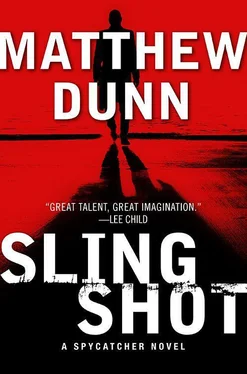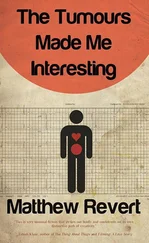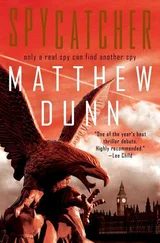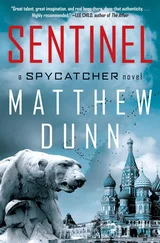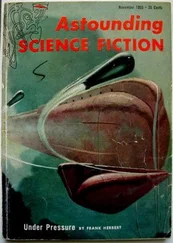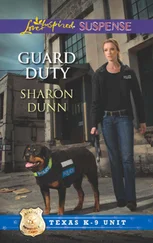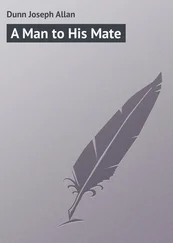Matthew Dunn - Slingshot
Здесь есть возможность читать онлайн «Matthew Dunn - Slingshot» весь текст электронной книги совершенно бесплатно (целиком полную версию без сокращений). В некоторых случаях можно слушать аудио, скачать через торрент в формате fb2 и присутствует краткое содержание. Год выпуска: 2013, ISBN: 2013, Издательство: William Morrow, Жанр: Триллер, на английском языке. Описание произведения, (предисловие) а так же отзывы посетителей доступны на портале библиотеки ЛибКат.
- Название:Slingshot
- Автор:
- Издательство:William Morrow
- Жанр:
- Год:2013
- ISBN:9780062038029
- Рейтинг книги:5 / 5. Голосов: 1
-
Избранное:Добавить в избранное
- Отзывы:
-
Ваша оценка:
- 100
- 1
- 2
- 3
- 4
- 5
Slingshot: краткое содержание, описание и аннотация
Предлагаем к чтению аннотацию, описание, краткое содержание или предисловие (зависит от того, что написал сам автор книги «Slingshot»). Если вы не нашли необходимую информацию о книге — напишите в комментариях, мы постараемся отыскать её.
Slingshot — читать онлайн бесплатно полную книгу (весь текст) целиком
Ниже представлен текст книги, разбитый по страницам. Система сохранения места последней прочитанной страницы, позволяет с удобством читать онлайн бесплатно книгу «Slingshot», без необходимости каждый раз заново искать на чём Вы остановились. Поставьте закладку, и сможете в любой момент перейти на страницу, на которой закончили чтение.
Интервал:
Закладка:
Within one hour, he was on the outskirts of the city, driving through suburbia. Soon thereafter he was moving through countryside. He estimated it would take him forty minutes to reach the man who was going to give him the equipment he needed before going to Yevtushenko’s house. Maybe today he could find out what was going on. Or maybe not. He hated the feeling of not being in control, though he was resolute that he would get to the truth.
The six Russian men were by the back of the SUV, finishing getting dressed in their white arctic clothing. They were in a deserted area of woodland sixty miles north of Moscow.
After donning his balaclava and pulling his jacket hood over it, Valerii looked at his colleagues. “Four miles on foot to the valley; then we split up and move to our positions. Understood?”
The men nodded.
Checking that his Bushnell PowerView 20x50 surveillance binoculars were firmly in place within his jacket, Valerii added, “Do it exactly as we planned.”
Yesterday the men had reconnoitered the valley containing Yevtushenko’s isolated house. They’d chosen three locations that collectively would give the team complete coverage of the property’s exterior from distances ranging between four hundred and six hundred yards. And they’d chosen two backup locations for each angle of observation, in case they needed to move because Will Cochrane was approaching the house on a route that was too close to their positions. The men would be in two-man teams: one to watch the house, the other to watch their backs. All of them were armed with MP-443 handguns, the standard issue firearm carried by police officers in this part of Russia, though Valerii had instructed them that they were only to use them if it looked likely that Will would escape the police. But if it came to that, they’d know what to do. They were former Spetsnaz operatives-experts in concealment and surveillance, long-range marksmanship, endurance, and close-quarters combat. As their commanding officer, Valerii had led the men on numerous successful missions. Now he commanded them in far more dubious, illegal, and very profitable operations.
“It’s crucial he’s in the building before we call it in.”
One of the men asked, “What should we do if the cops open fire on us?”
Valerii pulled out his handgun, checked its workings, and shrugged. “Don’t do anything to them until Cochrane’s dead. After that, you can do what you like.”
Will stopped his vehicle in what was technically a farmstead, though it was rather more a junkyard. Around him were corrugated iron huts, three cars that were resting on bricks and had no wheels, a barn whose timber had completely rotted away down one side, a small house that retained sturdy walls but had no roof, bits of mangled and unrecognizable machinery, and a trailer. Beyond the farmstead was uninhabited forest. He got out of the car and stood on snow-covered ground.
A middle-aged man-medium height, ruffled jet black hair, a handlebar moustache, numerous old scars on his face-emerged from the trailer. He was wearing oil-stained blue overalls and was holding a double-barreled shotgun in one hand.
Will looked around before calling out in Russian, “Good to see you again, Arman.”
“You’re on your own?”
“I didn’t bother to check”-Will grinned and nodded toward the gun-“because I knew you’d shoot anything that tried to creep up on me from behind.”
“Nice car. Is it yours?”
“It’s a rental.”
“You’re lucky. If it was yours I could have put both barrels into you and sold the Mercedes for parts.”
Arman Shpalikov walked quickly toward him, despite the limp he’d had since serving as a Soviet captain in the war in Afghanistan. Shaking Will’s hand with an iron grip, he replied, “Good to see you too, Philip. You want tea, coffee, vodka?”
From previous experience, Will knew that none of the options were preferable. “Black coffee.”
“But vodka when you’ve done your work-right?”
“If I have time.”
He led Will to his trailer. Inside were a tiny bed, a single-ring gas stove, a sink that was overflowing with dirty dishes and cups, a torn leather seat that ran flush against three sides of the trailer, and a two-foot-square table.
Will sat. “How’ve you been?”
Arman placed his gun on the table, put a pan of water onto the stove, struck a match, and lit the gas. “You know. Every day’s a blessing.”
It was. A piece of shrapnel was lodged inside Arman’s body. One day it would reach his heart and kill him, but the stubborn old warrior refused to have an operation to remove it because he believed the shrapnel made him embrace every moment of being alive.
“How’s business?”
The Russian grabbed two mugs and began rinsing them. “It shifts with the times.”
Arman did many things: as a former tank commander, his forte was vehicle and machinery repair work, though when the work wasn’t there he also made money by hunting wildlife and selling the catches at the local market, felling trees and turning them into logs and planks, buying and selling scrap metal, washing floors at a nearby restaurant, collecting refuse, and providing logistical support for MI6 operations in Russia.
Will had recruited him six years earlier because the Russian was an expert at sourcing things-guns, vehicles, communications equipment, fake documents, men who’d not think twice about killing someone for cash-and had a network of contacts who could help MI6 personnel move covertly across Russia in trains, boats, trucks, and other modes of transport. Though Will paid him for his service, Arman’s motivation to work for him was grounded in his hatred for the Soviet Union and by extension his hatred for Russia, because in his view both countries had been run by the same set of psychopathic bastards.
That hatred had started when he was deployed with the Fortieth Army to Afghanistan to fight the mujahideen. He’d witnessed both sides commit numerous atrocities, but one in particular had left him mentally scarred. During a Soviet offensive into the Panjshir Valley, his tank became damaged and separated from the rest of his unit. He and the rest of his crew were captured by mujahideen guerillas who immediately used their knives to behead his soldiers. One of the guerrillas then plunged his knife into Arman’s leg and kept twisting it while asking him in broken Russian how many Soviet tanks were heading along the valley. The torture continued for thirty minutes, during which time Arman told them nothing. He too would have almost certainly been decapitated, but Soviet soldiers who’d been looking for their missing tank attacked the group. The mujahideen fled into the hills and escaped, much to the fury of the officer commanding the Soviet rescue unit, a fury that was intensified when the major saw that one of the decapitated heads belonged to his younger brother.
Unable to walk, and in agony, Arman was placed on a stretcher, and the unit carried him three miles to the nearest village. He’d thought that he’d been brought there to receive medical help, but it transpired that the major had other intentions. After Arman was lowered onto the ground, the major ordered his men to round up every Afghan villager and point their guns at them. Further orders were issued. Five women were pulled out from the group, their legs and arms were bound with rope, and they were forced to lie down on top of each other until they formed a pile. Gasoline was poured over them. Holding a lighter in his hand and speaking to them through a translator, the major asked the rest of the villagers if they knew the whereabouts of the mujahideen who’d attacked Arman’s tank crew. The villagers were terrified, screaming, and pleading with him that they knew nothing. Before Arman could say anything, the major ignited the lighter and tossed it onto the bound women. As the women burned to death, the major strode forward and grabbed a girl who looked about four years old. After tying her to a shovel, he stuck the barrels of two rifles deep into the ground either side of the burning corpses, got two of his soldiers to hold the shovel at each end so that both the tool and the girl attached to it were horizontal, ordered the men to hold the girl over the fire, and tied the shovel to the butt of each rifle. Watching helplessly as the girl roasted to death over the bodies, Arman screamed louder than he’d screamed when the mujahideen blade had been stuck in him.
Читать дальшеИнтервал:
Закладка:
Похожие книги на «Slingshot»
Представляем Вашему вниманию похожие книги на «Slingshot» списком для выбора. Мы отобрали схожую по названию и смыслу литературу в надежде предоставить читателям больше вариантов отыскать новые, интересные, ещё непрочитанные произведения.
Обсуждение, отзывы о книге «Slingshot» и просто собственные мнения читателей. Оставьте ваши комментарии, напишите, что Вы думаете о произведении, его смысле или главных героях. Укажите что конкретно понравилось, а что нет, и почему Вы так считаете.
